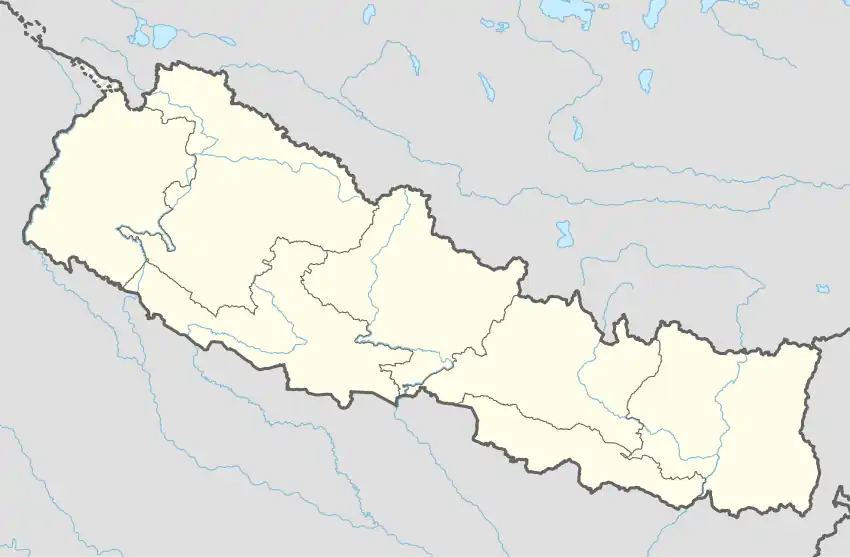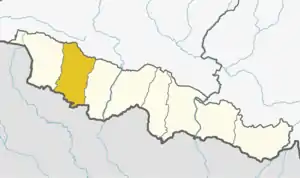Parwanipur
परवानीपुर | |
|---|---|
| Nickname: Industrial city | |
 Parwanipur Location in Nepal | |
| Coordinates: 27°04′N 84°55′E / 27.07°N 84.91°E | |
| Country | Nepal |
| Development Region | Central |
| Zone | Narayani Zone |
| District | Bara District |
| Province | Madhesh Province |
| Area | |
| • Total | 15.84 km2 (6.12 sq mi) |
| Population (2011)[1] | |
| • Total | 22,787 |
| • Density | 1,400/km2 (3,700/sq mi) |
| • Religions | Hindu Muslim Christian |
| Languages | |
| • Local | Bhojpuri, Maithili, Tharu, Nepali, Hindi |
| Time zone | UTC+5:45 (NST) |
| Postal Code | 44400 |
| Area code | 053 |
| Website | http://www.parwanipurmun.gov.np/ |
| Social Activist: Sochan Yadav | |
Parwanipur (Nepali: परवानीपुर ) is the smallest rural municipality in Bara District in Madhesh province of Nepal. It was formed in 2016 occupying current 5 sections (wards) from previous 5 former VDCs.[2] It occupies an area of 15.48 km2 with a total population of 22,787.[3][4][1] It lies approximately 12 km north to the Raxaul custom of Indian state of Bihar. Parwanipur is known as an industrial corridor of Nepal. Tribhuvan Highway links Parwanipur city with Birgunj metropolitan and Nepal's capital, Kathmandu. Parwanipur is known as industrial manufacturing hub which encompass variety of company such as pharmaceuticals, textile, plastic, steel, vegetable ghee and food industry. This municipality is also known for its major political scrum which has originated many prominent leaders and political activist.
References
- 1 2 Nepal, Government of Nepal (November 2012). ""National Population and Housing Census 2011 (Village Development Committee/Municipality)" (PDF). National Planning Commission. Archived from the original (PDF) on 5 October 2018. Retrieved 28 December 2018.
- ↑ "PM formally announces 744 local units operational". My Republica. Archived from the original on 13 August 2018. Retrieved 13 August 2018.
- ↑ "स्थानिय तह". 103.69.124.141. Archived from the original on 31 August 2018. Retrieved 1 September 2018.
- ↑ "Population Ward Level 753 Local Unit" (PDF). CBS. 2 June 2017. Archived from the original (PDF) on 27 January 2018. Retrieved 28 December 2018.
